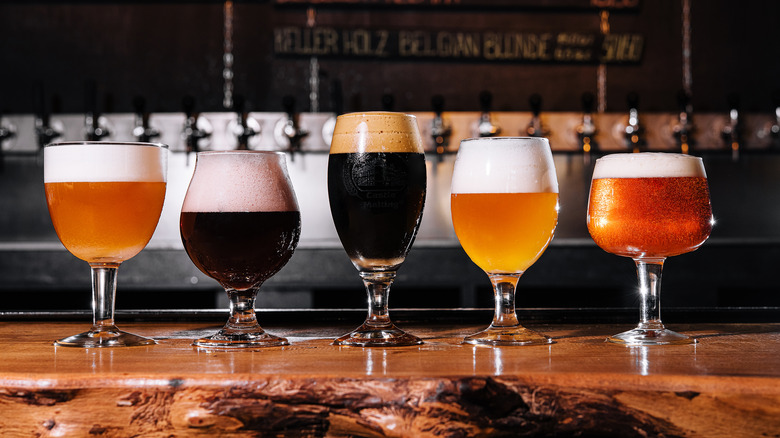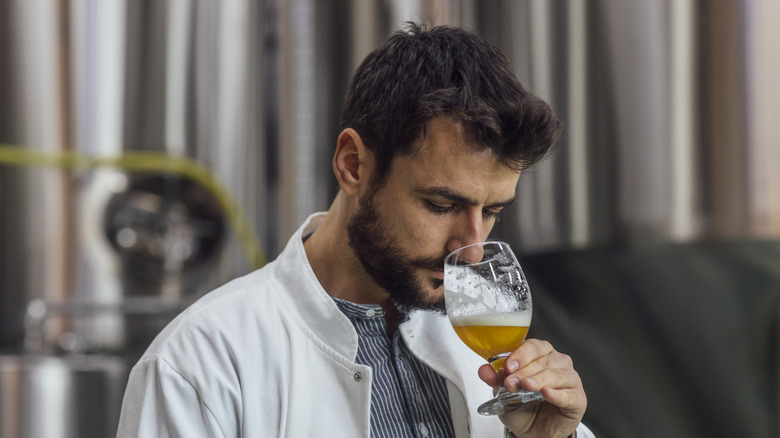What Is A Cicerone And How Do They Compare To Sommeliers?
At this point, a sommelier is a household term. We may not understand all the finer details but most people could tell you that it's the title of a wine expert. It was only a matter of time before the craft beer world developed its own version, and it's finally been done – enter the cicerone (pronounced sis-uh-rohn). Cicerones are defined by the Cicerone Certification Program (CCP) as "hospitality professionals with proven experience in selecting, acquiring, and serving today's wide range of beers."
There are four different levels of cicerones. Certified Beer Servers are ranked the lowest and, at the top, are the Master Cicerones. The level of Master Cicerone is notoriously difficult (the exam lasts two full days), with only 28 individuals in the world currently holding the title. The CCP has only been around since 2008, which likely has something to do with the small numbers — but it certainly isn't because of a lack of interest.
There are roughly 170 Advanced Cicerones, the step just below Master, and over 150,000 Certified Beer Servers out there. For comparison, the first Master Sommelier passed the exam in 1969 and today there are 273 Master Sommeliers worldwide. Comparing the difficulty of the two tests is a bit like comparing apples to oranges, but without a doubt, both certifications are certain to be a high point of anyone's career.
What must a cicerone know?
The education program of a cicerone revolves around five key areas: how to keep and serve beer, styles of beer, beer flavor and evaluation, the production of beer, and pairing beer with food. It covers every possible area someone in the service industry could possibly need to know about the topic and prepares them to create the perfect beer-tasting experience for a customer. Sommeliers have a similar rubric that they follow, focusing on taste, theory, and service paired with some knowledge of spirits and beer as well.
In both cicerone and sommelier tests, the most difficult to master is the tasting portion. For the Master Cicerone to pass they have to identify the style of beer, notice and identify flavors that deviate from the norm for that style, and assess whether the beer is fit to serve. Sommeliers are required to identify by taste the grape varietal, the region it was grown in, and the year it was grown. We'll let you be the judge over which one is more difficult, but neither is easy.
As an interesting aside, the word "cicerone" comes from the Roman orator and statesman Marcus Tullius Cicero. In the 18th century, a cicerone was the word for a tour guide who was exceptionally well-informed. The term has since fallen out of our vocabulary and is now reformulated for our expert tour guides of beer.

